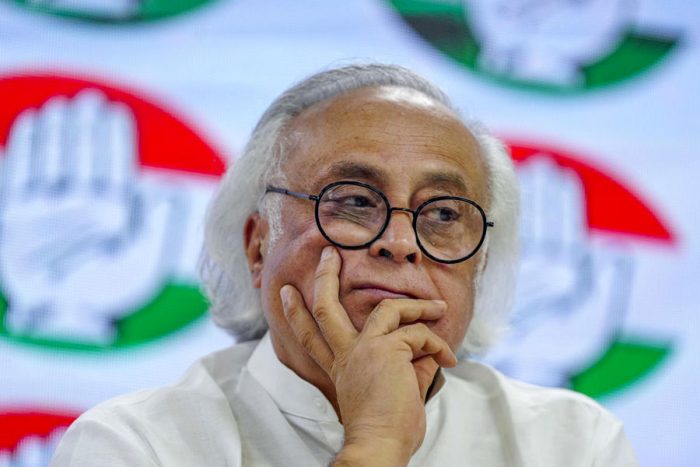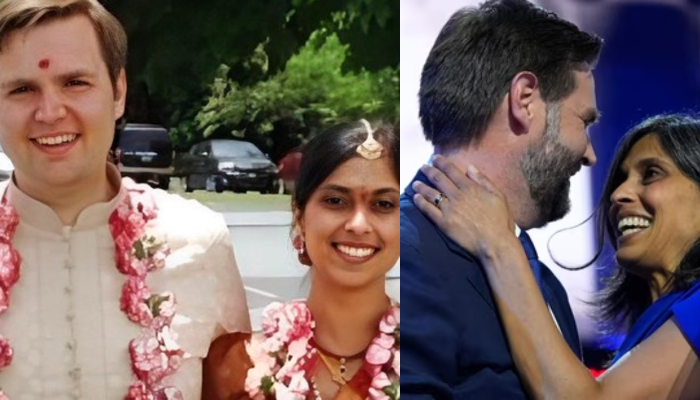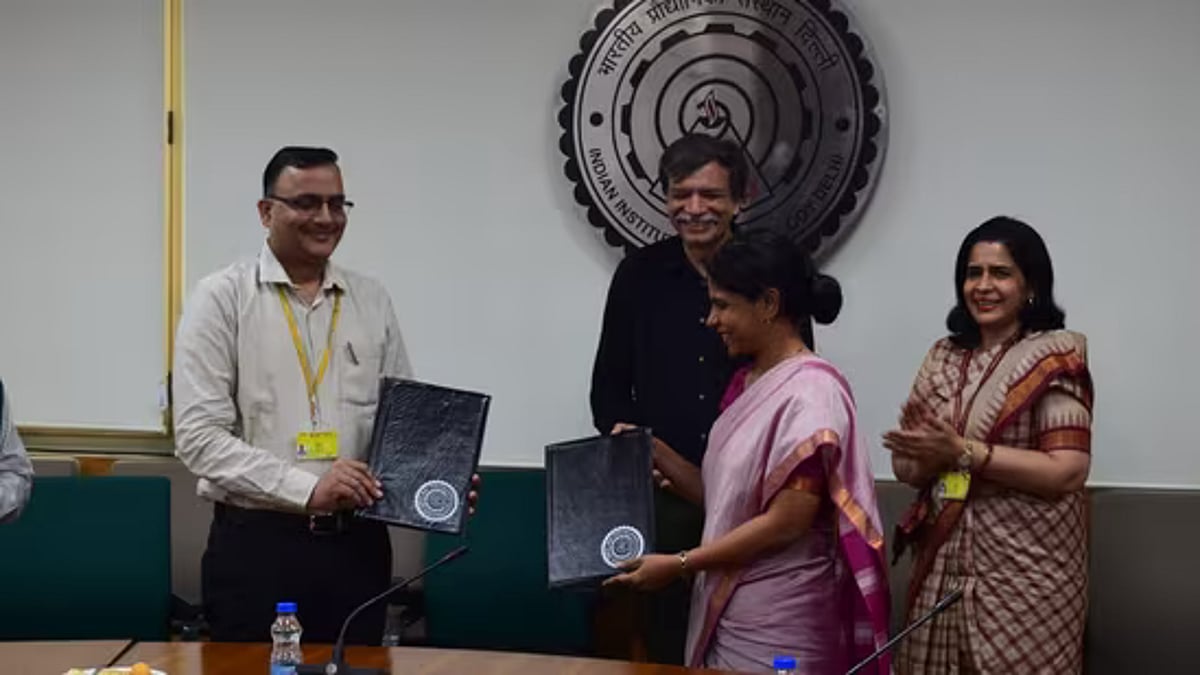Jairam Ramesh criticises BJP for quoting Manusmriti for whatever, but Ambedkar quoted it too for drafting the Hindu code bill: Is Jairam now suggesting Ambedkar was against the constitution?
From mollycoddling anti-Hindu elements, enacting laws like the Places of Worship Act to prevent Hindus from reclaiming their temples to rejecting the existence of Lord Ram, Congress has never shied away from expressing their disdain for India’s Hindu majority. In a latest, Congress leader Jairam Ramesh has objected to the Union Labour Ministry’s draft Shram Shakti Niti (2025) taking inspiration from Manusmriti. Taking to X on 29th October, Jairam Ramesh insinuated that the Shram Shakti Niti draft taking inspiration from Manusmriti, a foundational Hindu legal code, somehow marks India’s departure from constitutional values. “The Modi Govt’s draft Shram Shakti Niti 2025 released earlier this month for public feedback explicitly claims that the Manusmriti embeds” the moral basis of labour governance within India’s civilisational fabric, centuries before the rise of modern labour law,” Ramesh wrote. The Modi Govt's draft Shram Shakti Niti 2025 released earlier this month for public feedback explicitly claims that the Manusmriti embeds ”the moral basis of labour governance within India's civilisational fabric, centuries before the rise of modern labour law.”This return to… pic.twitter.com/852zXLdxJ5— Jairam Ramesh (@Jairam_Ramesh) October 29, 2025 “This return to the principles of the Manusmriti is in keeping with the RSS’s most cherished traditions. After all it had attacked the Constitution of India soon after it was adopted – on the grounds that it did not derive inspiration from the ideals and values of Manu as embodied in the Manusmriti,” he added. Intensifying his attack on the BJP, Jairam Ramesh told news agency ANI, “When the Constitution of India was adopted on 26 November 1949, the RSS launched a fierce attack on it, saying that this Constitution is not the Indian Constitution because it is not based on the values of the Manusmriti and draws no inspiration from it. Modi and the RSS are one, and the draft of the Modi government says that the Shram Shakti Niti draws inspiration not from the Constitution of India but from ancient texts like the Manusmriti. This is highly objectionable and against our Constitution…The caste system and casteism in our country are the contributions of the Manusmriti, and you will formulate a labour policy from that text. This is an insult to our Constitution.” #WATCH | Delhi: On the draft of Shram Shakti Niti 2025, Congress MP Jairam Ramesh says, "This is a draft and the Modi government has posted it on its website and asked for public feedback. This Shram Shakti Niti draws inspiration from ancient texts such as the Manusmriti. When… pic.twitter.com/5vS0HJPbgS— ANI (@ANI) October 30, 2025 The mention of Manusmriti in Shram Shakti Niti draft rattles Congress, party cries ‘insult to constitution’ while Dr BR Ambedkar himself took inspiration from Manusmriti for Hindu Code Bill Notably, the draft policy “Shram Shakti Niti 2025” aims to address the challenges for India’s labour force, which is going through a “profound structural transformation” with steady rising productivity and enterprise growth. However, it is still having issues pertaining to wage disparity, gender imbalance, and skill mismatch which hinder inclusive development. The draft’s Civilizational Ethos and Guiding Principles section highlights labour as a sacred duty and social value. It elaborates on how in the Indic worldview, labour/work or Shram is not merely a means of livelihood but a contribution to the broader order of dharma (righteous duty). To emphasise this point, the draft states, “Ancient texts such as the Manusmriti, Yajnavalkyasmriti, Naradasmriti, Sukraniti, and Arthashastra articulated this ethos through the concept of rajadharma, emphasising the sovereign’s duty to ensure justice, fair wages, and the protection of workers from exploitation. These early formulations embedded the moral basis of labour governance within India’s civilisational fabric, centuries before the rise of modern labour law.” While the Congress party has persistently been engaged in targeting Hindu faith and beliefs, this time, the grand old party used Dr BR Ambedkar’s name for the same. Jairam Ramesh accused BJP of ditching the values of ‘Ambedkar’s constitution’ and returning to the principles of the Manusmriti, in a bid to paint the BJP as casteist and regressive. However, the Congress leader forgot that even BR Ambedkar leaned on the principles of Maharishi Manu and his Manusmriti while drafting the Hindu Code Bill. Only if Congress leaders cared to read an actual copy of the constitution instead of waving that small and blank red constitution book, and read the writings of Dr Ambedkar, they would have known that despite his many disagreements, Ambedkar took inspiration from Manusmriti while drafting the Hindu Code Bill in 1949. The legislation aimed to provide equality by ‘reforming’ Hindu personal laws including those governing inheritance, marriage, and succession. BR Ambed



From mollycoddling anti-Hindu elements, enacting laws like the Places of Worship Act to prevent Hindus from reclaiming their temples to rejecting the existence of Lord Ram, Congress has never shied away from expressing their disdain for India’s Hindu majority. In a latest, Congress leader Jairam Ramesh has objected to the Union Labour Ministry’s draft Shram Shakti Niti (2025) taking inspiration from Manusmriti.
Taking to X on 29th October, Jairam Ramesh insinuated that the Shram Shakti Niti draft taking inspiration from Manusmriti, a foundational Hindu legal code, somehow marks India’s departure from constitutional values.
“The Modi Govt’s draft Shram Shakti Niti 2025 released earlier this month for public feedback explicitly claims that the Manusmriti embeds” the moral basis of labour governance within India’s civilisational fabric, centuries before the rise of modern labour law,” Ramesh wrote.
The Modi Govt's draft Shram Shakti Niti 2025 released earlier this month for public feedback explicitly claims that the Manusmriti embeds ”the moral basis of labour governance within India's civilisational fabric, centuries before the rise of modern labour law.”
— Jairam Ramesh (@Jairam_Ramesh) October 29, 2025
This return to… pic.twitter.com/852zXLdxJ5
“This return to the principles of the Manusmriti is in keeping with the RSS’s most cherished traditions. After all it had attacked the Constitution of India soon after it was adopted – on the grounds that it did not derive inspiration from the ideals and values of Manu as embodied in the Manusmriti,” he added.
Intensifying his attack on the BJP, Jairam Ramesh told news agency ANI, “When the Constitution of India was adopted on 26 November 1949, the RSS launched a fierce attack on it, saying that this Constitution is not the Indian Constitution because it is not based on the values of the Manusmriti and draws no inspiration from it. Modi and the RSS are one, and the draft of the Modi government says that the Shram Shakti Niti draws inspiration not from the Constitution of India but from ancient texts like the Manusmriti. This is highly objectionable and against our Constitution…The caste system and casteism in our country are the contributions of the Manusmriti, and you will formulate a labour policy from that text. This is an insult to our Constitution.”
#WATCH | Delhi: On the draft of Shram Shakti Niti 2025, Congress MP Jairam Ramesh says, "This is a draft and the Modi government has posted it on its website and asked for public feedback. This Shram Shakti Niti draws inspiration from ancient texts such as the Manusmriti. When… pic.twitter.com/5vS0HJPbgS
— ANI (@ANI) October 30, 2025
The mention of Manusmriti in Shram Shakti Niti draft rattles Congress, party cries ‘insult to constitution’ while Dr BR Ambedkar himself took inspiration from Manusmriti for Hindu Code Bill
Notably, the draft policy “Shram Shakti Niti 2025” aims to address the challenges for India’s labour force, which is going through a “profound structural transformation” with steady rising productivity and enterprise growth. However, it is still having issues pertaining to wage disparity, gender imbalance, and skill mismatch which hinder inclusive development.
The draft’s Civilizational Ethos and Guiding Principles section highlights labour as a sacred duty and social value. It elaborates on how in the Indic worldview, labour/work or Shram is not merely a means of livelihood but a contribution to the broader order of dharma (righteous duty).
To emphasise this point, the draft states, “Ancient texts such as the Manusmriti, Yajnavalkyasmriti, Naradasmriti, Sukraniti, and Arthashastra articulated this ethos through the concept of rajadharma, emphasising the sovereign’s duty to ensure justice, fair wages, and the protection of workers from exploitation. These early formulations embedded the moral basis of labour governance within India’s civilisational fabric, centuries before the rise of modern labour law.”

While the Congress party has persistently been engaged in targeting Hindu faith and beliefs, this time, the grand old party used Dr BR Ambedkar’s name for the same. Jairam Ramesh accused BJP of ditching the values of ‘Ambedkar’s constitution’ and returning to the principles of the Manusmriti, in a bid to paint the BJP as casteist and regressive. However, the Congress leader forgot that even BR Ambedkar leaned on the principles of Maharishi Manu and his Manusmriti while drafting the Hindu Code Bill.
Only if Congress leaders cared to read an actual copy of the constitution instead of waving that small and blank red constitution book, and read the writings of Dr Ambedkar, they would have known that despite his many disagreements, Ambedkar took inspiration from Manusmriti while drafting the Hindu Code Bill in 1949.
The legislation aimed to provide equality by ‘reforming’ Hindu personal laws including those governing inheritance, marriage, and succession. BR Ambedkar had contended that giving women rights in property was stated by Smritikars such as Rishi Manu. During the constituent assembly debate on 24th February 1949, he said [pdf].
“There is no doubt about it that the two Smritikars whom I have mentioned Yagnavalkya and Manu, rank the highest among the 137 who had tried their hands in framing Smritis. Both of them have stated that the daughter is entitled to a one-fourth share. It is a pity that somehow for some reason custom has destroyed the efficacy of that text: otherwise, the daughter would have been, on the basis of our own Smritis, entitled to get one-fourth share.”
He further blamed the Privy Council for prioritising customs over laws, in the absence of which Manusmriti would have empowered women and their inheritance rights years ago.
“I am very sorry for the ruling which the Privy Council gave. It blocked the way for the improvement of our law. The Privy Council in an earlier case said that custom will override law, with the result that it became quite impossible to our Judiciary to examine our ancient codes and to find out what laws were laid down by our Rishis and by our Smritikars. I have not the least doubt about it that if the Privy Council had not given that decision, that custom will override text, some lawyer, some Judge would have found it quite possible to unearth this text of Yagnavalkya and Manusmriti, and women today would have been enjoying, if not more, at least one-fourth of the share of their property.”
While upholding the views of Rishi Manu, BR Ambedkar emphasised:
“However, this is the position, namely, so far as the daughter’s share is concerned, the only innovation that we are making is that her share is increased and that we bring her in the line with the son or the widow. That also, as I say, would not be an innovation if you accept my view that in doing this we are merely going back to the text of the Smritis which you all respect.”
It is ironic that the party which strangled democracy by imposing national emergency to hold on to power has the audacity to accused others of ignoring or undermining the constitution. While Jairam Ramesh claims that Manusmriti introduced caste system and casteism in the society, the ancient text did not prescribe or promote birth-based caste and related privileges or discrimination, rather, it talks about a Guna and Karma-based social order. Had the ancient Hindu text been entirely divisive and casteist, Ambedkar would not have relied on its wisdom to draft the Hindu Code Bill, decades after he reportedly burnt the copies of Manusmriti publicly.
Far from rejecting the text outright, Dr Ambedkar strategically invoked Manusmriti to demonstrate that progressive reforms found their roots in Hindu tradition. Ambedkar was not like a typical present clout hungry Congress politician but a scholar who was open-minded enough to take inspiration even from sources he may have criticised in the past. By wielding Ambedkar as some sort of unassailable shield against the BJP’s imaginary regressive and casteist pivot, Jairam Ramesh’s salvo inadvertently paints Dr Ambedkar as an opponent of the very constitution he is accredited to have played a key role in drafting.
If taking inspiration from religious scriptures which some may find regressive was such a sin, the ‘secular, liberal and progressive’ Congress should oppose those who follow a religious text which essentially commands killing of and discriminatory treatment of those who the book deems ‘infidels’, and those who openly chose their religious text over ‘Babasaheb’s constitution’. However, forget calling them regressive or anti-constitution, the Congress party goes to the extent of bringing up the anti-Hindu, Communal Violence Bill 2011 and even gift 123 government properties.



























































































